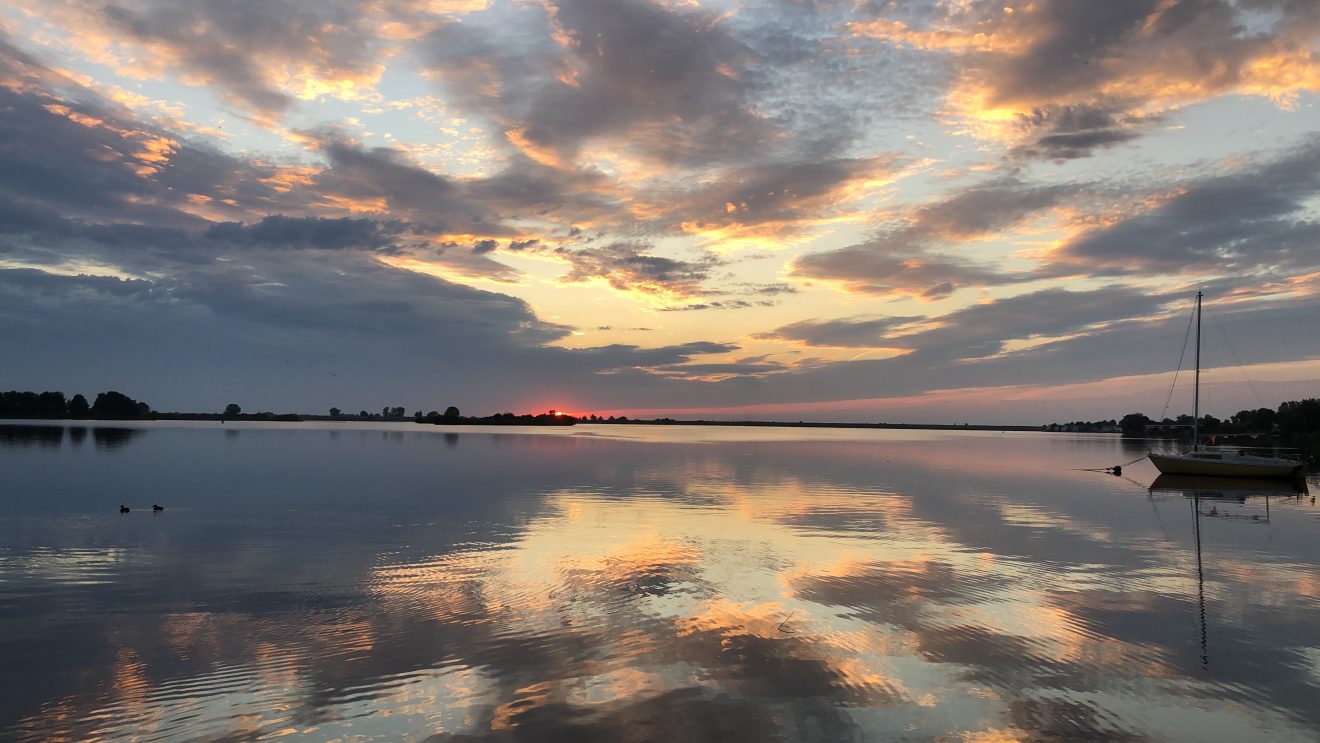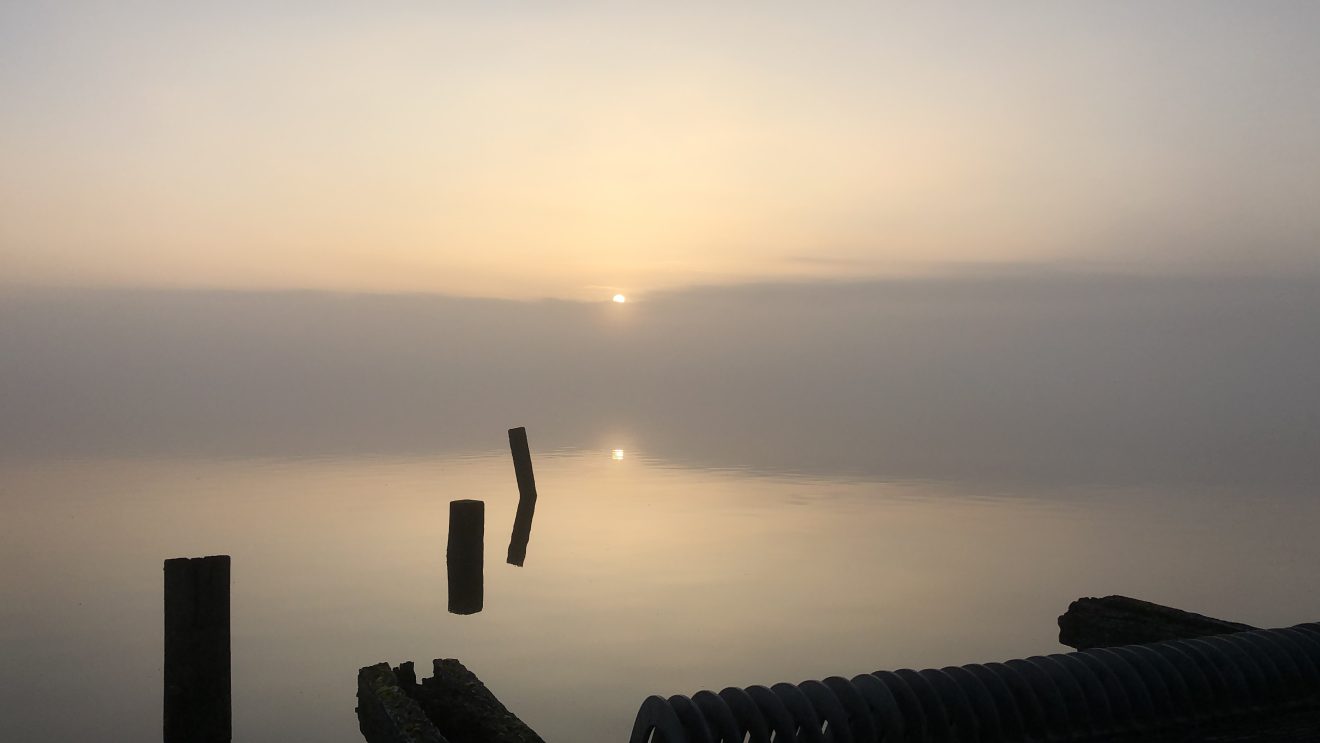The Book of Yourself Newsletter
Issue 34: September 2024
|

|
A couple of months ago KFA asked whether I would be willing and able to conduct a five-day online workshop on the theme of Social Responsibility. Having no other activity scheduled for the proposed dates, I readily agreed. I had to write up a program description to give those who might be interested an idea of what we would be covering. To do this I looked through the recently published How to Find Peace (2024), which is a highly modified version of Social Responsibility (1992). The new edition contains a whole new chapter on the relationship with nature and the environment as well as the famous speech before the Pacem in Terris Society of the UN. Perhaps to counterbalance these additions, they took out a good deal of other texts from the earlier publication, in particular from the chapter on education and world peace. Putting together this sort of book requires that the search results be selected and organized so that the theme is unfolded sequentially rather than continuously reiterated. Unfortunately, apart from containing some real jewels, I found this compilation unduly repetitive. While these publications could still serve as basic references, I would need to supplement them to provide a more encompassing view of the topic. However, the key points seemed to stand out clearly enough, namely that there is chaos and disorder in the world, that society is the outcome of our values and relationships, that to change society we must change ourselves, and that this transformation comes about through self-knowledge, the ultimate ground of our social responsibility being that society is us, that we are the world.
|
We humans are social animals. We all live in society, in close interaction with others. These social relations range from the family to the community, to the nation and the entire world. What we see in this global network is an enduring dynamic of fragmentation between groups as well as inside them. There are ethnic, class, national, religious and ideological divisions which make for a sustained condition of conflict, the ultimate expression of which is the savage and tragic spectacle of war. This has been the shifting pattern of history, whose ordered pages retain the record of these recurrent debacles. After all these thousands of years we continue in the same vein, having explained everything and learned nothing.
|
We are are in the midst of a catastrophic ecological crisis and facing several fratricidal conflicts. The ongoing social, political and economic struggles are the standard fair of the daily news. We watch the devastation, the brutality, the unspeakable suffering and utter lack of justice, and wonder what to do. The sense of impotence in the face of these ongoing catastrophes, in the face of the pervasive callousness, cynicism and lack of moral conscience, can be rather depressing, especially when considering the future that it presages for our children. While we may not be able to stop some of the ongoing disasters, we have it in us to change the culture by freeing ourselves of the inward or psychological causes of division and conflict, thus restoring a sense of creative wholeness to our lives. For, after all, we are the world and the world is us, which is the foundation of universal responsibility, cooperation and peace.
|
“Our life is not different from the rest of the world: we are the world. I don’t think any of us realise, deeply and continuously, that we are the world and the world is us. This must be deeply rooted within us. We have made this social structure, this violence, according to our desires, according to our ambition, greed and envy, and if we would change society, we must first change ourselves; that seems such a simple, radical approach to the whole problem. But we think that by changing the outer structure of society, by throwing bombs, making political divisions and the like, we shall by some miracle all become perfect human beings; I am afraid that never works. And to realise that we are the world, not as a verbal statement or a theory, but to actually feel it in our hearts, is very difficult, because our education, our culture, has laid emphasis on our being separate from the world; that as individuals we have a responsibility to ourselves and not to the rest of the world, that as individuals we are free to do as we like, within reason. But we are not individuals at all; we are the result of the culture in which we live. An individual means an entity who is not fragmented, who is whole; we are not that. We are broken up, fragmented, in a state of contradiction within ourselves, therefore we are not individuals.”
|
The Awakening of Intelligence, pp. 297-298
|
|
Our so-called civilized existence has been characterized by an uneasy compromise between individual and society. In answer to the question whether the individual exists for society or society for the individual, the historic pendulum has swung between democratic freedom and totalitarian regimentation. Independently of its constitutional orientation, the social system invariably compels the individual to become a cog in its machine. The individual is not separate from society. There is a symbiosis between them: the individual creates society and society in turn shapes and defines the so-called individual. The individual is the product of his socio-cultural environment. As such a local, conditioned entity, he is not an individual. Conditioning is the key to understanding their relationship, not the usual structure of rights and duties. We are not only conditioned idiosyncratically as individuals and culturally as social entities, but also as human beings. This human conditioning is much older than our social and individual makeup. It has, to begin with, a great deal of the animal in it. It is at this deeper universal level where we can transcend the struggle between the individual and society, so that we are in the world and not of the world.
|
|

|
|
“Society is the relationship between people – the relationship between one person and another, between one family and another, between one group and another, and between the individual and the group. Human relationship is society, the relationship between you and me. If I am very greedy, very cunning, if I have great power and authority, I am going to push you out; and you will try to do the same to me. So we make laws. But others come and break the laws, establishing another set of laws, and that goes on all the time. In society, which is human relationship, there is constant conflict. This is the simple basis of society, which becomes more and more complex as human beings themselves become more and more complex in their ideas, in their wants, in their institutions and their industries.”
|
K never tired of pointing out that society is the outcome of the relationship between individuals. Therefore, if we change our relationship, we change society. And, as is perfectly evident from the high levels of confusion, conflict and disorder, society needs changing. Our relationship with things, nature, people and ideas constitutes the constellation of values governing the social structure. These relationships are characterized by a materialist, possessive outlook, by the pursuit of pleasure and security, by use and convenience. Their principal motivation is the aggrandizement of the individual and the group through the pursuit of ambition, greed and power. The very self-centered nature of such an enterprise is the factor of division and conflict, for it makes for isolation and conflict. And where there is conflict there is no love. Particularly in human relations, the image plays a central role. Our relationships become masked balls in which the dancers continuously see each other through the screen of their projections. We are objects for each other, not living beings. The image is separation, with its inherent satisfaction, frustration and violence. In love there is no me and you, no image, for where the image is there is no relationship. And without right relationship society will carry on in the same old chaotic and destructive way.
|
|
“To be is to be related, and there is no such thing as living in isolation. It is the lack of right relationship that brings about conflicts, misery and strife; however small our world may be, if we can transform our relationship in that narrow world, it will be like a wave extending outward all the time. I think it is important to see that point, that the world is our relationship, however narrow; and if we can bring a transformation there, not a superficial but a radical transformation, then we shall begin actively to transform the world. Real revolution is not according to any particular pattern, either of the left or of the right, but it is a revolution of values, a revolution from sensate values to the values that are not sensate or created by environmental influences. To find these true values which will bring about a radical revolution, a transformation or a regeneration, it is essential to understand oneself. Self-knowledge is the beginning of wisdom, and therefore the beginning of transformation or regeneration.”
|
The First and Last Freedom, pg. 43
|
Our concern is with the transformation of the human condition. As the inner invariably overcomes the outer, it is to the inner we must look for a radical change in society. K would say that the only revolution is a revolution in consciousness, which is the common ground of humanity. To transform the world we must transform ourselves and that can only happen when we have an insight into the particular content and the universal structure of consciousness. The key to this insight is the quality of observation in which there is no division between the observer and the observed. Only the perception of facts, of what is, liberates. This sets the ground of order, sensitivity and intelligence that propitiates the discovery of the true values needed to bring about a new culture free from violence and its untold suffering. So our fundamental responsibility is to know ourselves and we can do so through the revelation of what we are in the mirror of relationship.
|
While theoretically we might be able to draw a relatively coherent map of what is involved in our responsibility, not only as so-called individuals in society but as human beings, not only in relation to each other but to the whole of existence, we have to ask ourselves in which way that responsibility actually expresses itself. After all, the proof of the pudding is in the eating. As responsibility means to respond, that is equivalent to asking how we meet the fundamental and urgent challenge of pervasive fragmentation and conflict. Are we aware of its nature and depth and of our total involvement in it? Tha means we have to examine whether we are identified with an ethnic, nationalistic or religious group; whether we are ambitious, envious, greedy and competitive; whether we are bent on the pursuit of pleasure, security and power; whether we use others for our satisfaction, convenience and becoming; whether we are ruthless and dishonest in the pursuit of self-interest, etc. etc. Our relationship with each other as well as with nature, things and ideas is what needs changing, for that is the key to a meaningful life and the transformation of society. And, as K would say, to go far we must begin near and the nearest is ourselves. That is not navel gazing because we are is the expression of the shared consciousness of humanity, which is where the radical revolution can take place.
|
|
Take care, amigos, and let’s keep looking quietly and choicelessly into the mirror,
|
Photos by J. Gómez Rodríguez: 1 & 2 Sunset, Het Bovenwater, Lelystad, The Netherlands.
|
|
|
|
|
|
|
|
|